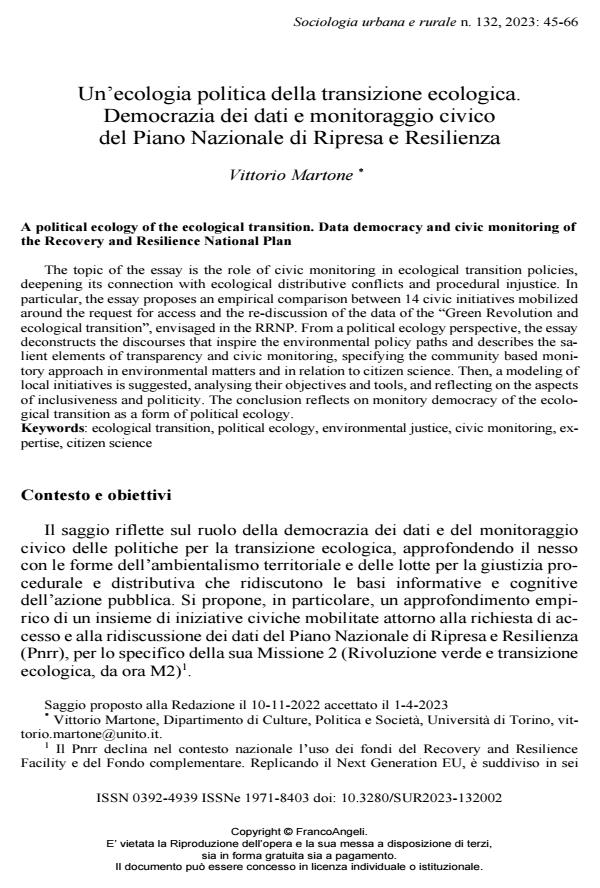A political ecology of the ecological transition. Data democracy and civic monitoring of the Recovery and Resilience National Plan
Journal title SOCIOLOGIA URBANA E RURALE
Author/s Vittorio Martone
Publishing Year 2023 Issue 2023/132
Language Italian Pages 22 P. 45-66 File size 410 KB
DOI 10.3280/SUR2023-132002
DOI is like a bar code for intellectual property: to have more infomation
click here
Below, you can see the article first page
If you want to buy this article in PDF format, you can do it, following the instructions to buy download credits

FrancoAngeli is member of Publishers International Linking Association, Inc (PILA), a not-for-profit association which run the CrossRef service enabling links to and from online scholarly content.
The topic of the essay is the role of civic monitoring in ecological transition policies, deepening its connection with ecological distributive conflicts and procedural injustice. In particular, the essay proposes an empirical comparison between 14 civic initiatives mobilized around the request for access and the re-discussion of the data of the “Green Revolution and ecological transition”, envisaged in the RRNP. From a political ecology perspective, the essay deconstructs the discourses that inspire the environmental policy paths and describes the salient elements of transparency and civic monitoring, specifying the community based monitory approach in environmental matters and in relation to citi-zen science. Then, a modeling of local initiatives is suggested, analysing their objectives and tools, and reflecting on the aspects of inclusiveness and politicity. The conclusion reflects on monitory democracy of the ecological transition as a form of political ecolo-gy.
Keywords: ecological transition, political ecology, environmental justice, civic monitor-ing, expertise, citizen science
Vittorio Martone, Un’ecologia politica della transizione ecologica. Democrazia dei dati e monitoraggio civico del Piano Nazionale di Ripresa e Resilienza in "SOCIOLOGIA URBANA E RURALE" 132/2023, pp 45-66, DOI: 10.3280/SUR2023-132002